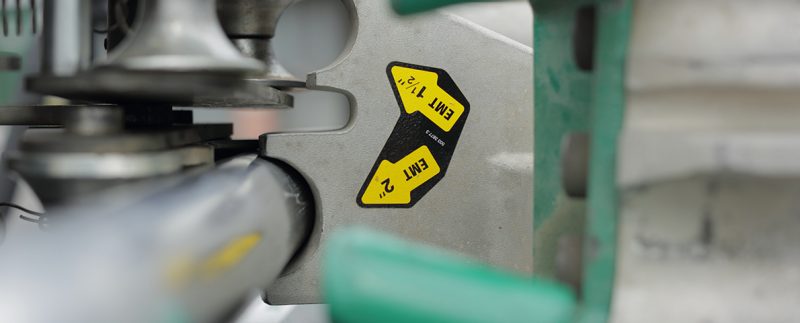The experts with American Conduit regularly receive many questions. One of the most common is, “Is aluminum conduit less corrosive than steel?” Aluminum conduit is generally considered less corrosive than steel conduit due to its inherent properties and resistance to corrosion in various environments. Aluminum exhibits superior corrosion resistance under the vast majority of conditions. Here are a few of the reasons that’s the case.
Natural Corrosion Resistance
 Aluminum’s natural corrosion-resistant properties make it well-suited for corrosive environments. Unlike steel, which is prone to rust and corrosion when exposed to moisture or harsh chemicals, aluminum forms a protective oxide layer on its surface when exposed to oxygen, preventing further corrosion and degradation. This oxide layer is a barrier against environmental elements, such as moisture, humidity, and corrosive substances, effectively protecting the underlying metal from corrosion.
Aluminum’s natural corrosion-resistant properties make it well-suited for corrosive environments. Unlike steel, which is prone to rust and corrosion when exposed to moisture or harsh chemicals, aluminum forms a protective oxide layer on its surface when exposed to oxygen, preventing further corrosion and degradation. This oxide layer is a barrier against environmental elements, such as moisture, humidity, and corrosive substances, effectively protecting the underlying metal from corrosion.
Resistance to Rust
Unlike steel conduit, which can rust and corrode over time when exposed to moisture or water ingress, aluminum conduit doesn’t rust or develop red rust stains. This resistance to rust makes aluminum conduit perfect for outdoor installations and underground applications. It’s also superior for environments with high humidity or moisture content, where steel conduit may be susceptible to corrosion and degradation.
Chemical Resistance
Aluminum conduit demonstrates excellent resistance to a wide range of chemical substances, including acids, alkalis and salts, which can cause corrosion in steel conduit. This chemical resistance makes aluminum conduit suitable for applications where exposure to corrosive chemicals or industrial pollutants is a concern, such as chemical processing plants, wastewater treatment facilities, and industrial manufacturing environments.
Compatibility with Aluminum Wiring
Aluminum is compatible with aluminum wiring and is commonly used in electrical installations due to its cost-effectiveness and conductivity properties. Using aluminum conduit with aluminum wiring ensures compatibility and reduces the risk of galvanic corrosion, which can occur when dissimilar metals come into contact. This compatibility further enhances the longevity and reliability of electrical systems in which aluminum conduit is employed.
Lightweight Design
Because aluminum conduit is significantly lighter than steel conduit, it is easier to handle, transport, and install. Its lightweight design reduces the need for heavy-duty equipment and minimizes the risk of physical damage during handling and installation. Additionally, aluminum conduit’s lightweight construction reduces stress on mounting hardware and support structures, enhancing its durability and resistance to corrosion over time.
Environmental Factors
Aluminum conduit performs well in various environmental conditions, including coastal areas, industrial settings, and corrosive atmospheres, where exposure to saltwater, airborne pollutants, and corrosive agents is prevalent. Its resistance to corrosion in these environments helps maintain structural integrity and electrical performance, ensuring reliable operation and minimizing maintenance requirements over the conduit’s lifespan.
Aluminum conduit is perfect for corrosive environments and applications where resistance to rust and chemical degradation is critical. By using this amazing material, electrical professionals can ensure safe, reliable, and long-lasting electrical installations tailored to their project needs.
We’re Ready to Answer All of Your Questions
If you want to know if aluminum conduit is less corrosive than steel or have any other questions, please ask an American Conduit professional. You can either use our online contact form or give us a call at 1-800-334-6825.

